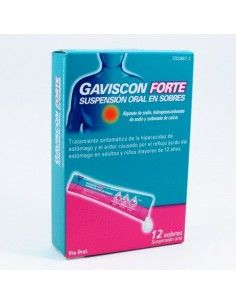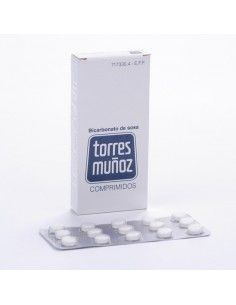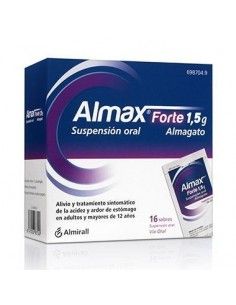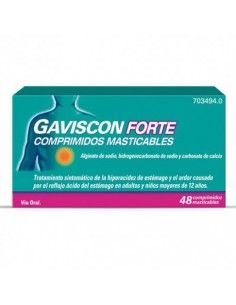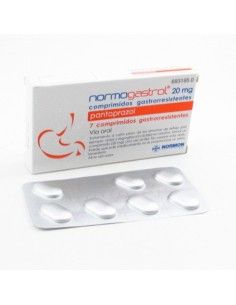Almax 500 mg 18 chewable tablets
Almagate
Read all of this leaflet carefully before you start taking this medicine because it contains important information for you.
Follow the instructions for taking the medicine exactly as given in this leaflet or as directed by your doctor, pharmacist or nurse.
Keep this leaflet, as you may need to read it again.
If you need advice or further information, ask your pharmacist.
If you experience side effects, talk to your doctor, pharmacist or nurse, even if they are not listed in this leaflet. See section 4.
You should consult a doctor if you get worse or if you do not improve after 14 days.
Package leaflet contents:
What Almax is and what it is used for
What you need to know before you start taking Almax
How to take Almax
Possible side effects
Storage of Almax
Package contents and additional information
What Almax is and what it is used for
Almax belongs to a group of medicines called antacids, which are compounds that work by neutralising excess stomach acid.
It is indicated for the relief and symptomatic treatment of heartburn and acidity in adults and people over 12 years of age.
A doctor should be consulted if it worsens or does not improve after 14 days.
2. What you need to know before you start taking Almax
Do not take Almax
If you are allergic to almagate or any of the other ingredients of this medicine (listed in section 6).
If you have Alzheimer's disease.
If you have undiagnosed bleeding from the gastrointestinal tract, haemorrhoids, fluid retention (oedema), liver complication during pregnancy (toxaemia gravidarum) or diarrhoea.
Warnings and precautions
Consult your doctor, pharmacist or nurse before you start taking Almax:
If you have mild to moderate kidney disease as aluminium and magnesium ions may accumulate long-term in the body. In this case, the lower doses may be recommended. Almax is not recommended in severe kidney failure.
If you are on a diet low in phosphorus, have diarrhoea, malabsorption or are very weak, as aluminium salts decrease the absorption of phosphorus, which can lead, especially with prolonged treatment, to a decrease in the phosphate content of the blood (loss of appetite, muscle weakness, general malaise, etc.) and insufficient mineralisation of the bones (osteomalacia).
If you are an elderly patient as continued use of aluminium-containing antacids may aggravate existing bone disease (osteoporosis and osteomalacia), due to depletion of phosphorus and calcium.
Inform your doctor if you develop any symptoms indicating gastrointestinal bleeding, such as vomiting of blood or blackish discolouration of the stools.
Children and adolescents
Antacids should not be given to children under 12 years of age, as they may mask other existing diseases (e.g. appendicitis). In younger children there is a risk of increased blood magnesium or aluminium toxicity, especially if they are dehydrated or have kidney disease.
Use of other medicines
Tell your doctor or pharmacist if you are taking, have recently taken or may take any other medicines.
Antacids modify the absorption of many medicines so, in general, taking Almax should be taken 2-3 hours before taking any other medicines.
It is especially important to inform your doctor if you are taking any of the following medicines:
Nonsteroidal anti-inflammatory drugs (medicines used to treat pain and inflammation, e.g. flufenamic acid or mefenamic acid, indomethacin).
Anti-ulcer drugs (medicines to treat stomach or duodenal ulcers and heartburn among others, e.g. cimetidine, famotidine, ranitidine).
Digitalis (medicines to treat changes in heart function, e.g. digoxin, digitoxin).
Antipsychotics (medicines to treat behavioural disorders and psychiatric symptoms, e.g. chlorpromazine).
Lansoprazole (medicine to treat stomach ulcer).
Corticosteroids (prednisone).
Gabapentin (medicine to treat epilepsy).
Ketoconazole (medicine to treat fungus).
Medicines for the treatment of infections, such as penicillamine, quinolones (ciprofloxacin), tetracyclines (chlortetracycline, demeclocycline, doxycycline).
Iron salts (iron sulphate).
As Almax may decrease the absorption of the medicines listed above due to changes in stomach conditions or formation of poorly soluble complexes.
Quinidine (medicine to treat heart rhythm disturbances), as Almax may increase its toxicity by decreasing its elimination due to increased urine pH.
Salicylates (medicines to relieve pain and reduce fever and inflammation, e.g. acetylsalicylic acid), as Almax may decrease their concentrations by increased elimination due to increased urine pH, especially with high doses of salicylate.
Consult your doctor in case you are going to have a stomach composition test, as Almax may alter the result of the test.
Pregnancy, breast-feeding and fertility
If you are pregnant or breast-feeding, think you may be pregnant or intend to become pregnant, consult your doctor or pharmacist before using this medicine.
Pregnancy
Chronic or excessive use of Almax should be avoided during pregnancy because of the risk of abnormalities in the foetus/newborn.
If a longer course of treatment is necessary, consult your doctor who will advise you on the appropriate regimen.
If you are pregnant or think you may be pregnant, consult your doctor or pharmacist before taking any medicine. The use of medicines during pregnancy may be dangerous for the embryo or foetus and should be monitored by your doctor.
Breastfeeding
Chronic or excessive use of Almax should be avoided.
Although small amounts of aluminium and magnesium may be excreted in breast milk in mothers treated with Almax, their concentration is not high enough to produce adverse effects in the infant.
Driving and using machines
Almax does not affect your ability to drive or operate machinery.
3. How to take Almax
Follow exactly the instructions for taking the medicine given in this leaflet or as directed by your doctor, pharmacist or nurse. If you are in any doubt, ask your doctor, pharmacist or nurse.
Use in adults and those over 12 years of age:
The recommended dose is 2 tablets (1 gram of almagate) three times a day, preferably half an hour to an hour after meals. If discomfort reoccurs, another dose may be taken before bedtime.
Do not exceed 8 grams per day (16 tablets).
Use in elderly patients:
The dose does not need to be changed (See Warnings and Precautions section).
Use in patients with kidney disease:
If you have severe renal insufficiency, it is not recommended to take Almax (see Warnings and Precautions section).
If you have mild or moderate kidney disease, your doctor may recommend lower doses (see Warnings and Precautions section).
Almax should be taken by mouth.
The tablets can be chewed or dissolved in the mouth.
If you take more Almax than you should
At the recommended doses, poisoning is not to be expected with this medicine. In patients with a diet low in phosphorus and/or prolonged treatment with high doses, a decrease in the phosphate content of the blood and insufficient mineralisation of the bones may occur.
If you have taken more Almax than you should, consult your doctor or pharmacist immediately, or call the Poisons Information Service, telephone 915 620 420, stating the medicine and the amount taken.
If you forget to take Almax
Do not take a double dose to make up for a forgotten dose. Take the missed dose when you can if the time interval is short, or wait to take the next dose as long as there is no discomfort, in which case it can be taken earlier. Take subsequent doses as often as directed between doses.
If you have any other questions about the use of this medicine, ask your doctor, pharmacist or nurse.
4. Possible side effects
Like all medicines, Almax can cause side effects, although not everybody gets them.
Because of poor intestinal absorption, side effects from almagate are rare. Occasionally (no data are available to estimate the frequency), diarrhoea has been reported, which usually disappears after discontinuation of treatment.
Reporting side effects
If you experience any side effects, please tell your doctor, pharmacist or nurse, even if they do not appear in this leaflet. You can also report them directly to the Spanish Pharmacovigilance System for Medicinal Products for Human Use, Website: www.notificaram.es. By reporting adverse effects you can help to provide more information on the safety of this medicine.
5. Storage of Almax
Keep out of the sight and reach of children.
No special storage conditions are necessary.
Do not use this medicine after the expiry date which is stated on the carton after EXP. The expiry date is the last day of the month indicated.
Medicines should not be flushed down the drain or thrown away. Please dispose of unneeded medicines and containers at the SIGRE Point at the pharmacy. If in doubt, ask your pharmacist how to dispose of unneeded medicine containers and medicines. This will help to protect the environment.
6. Package contents and additional information
Composition of Almax 500 mg chewable tablets
The active substance is almagate. Each tablet contains 500 mg of almagate.
The other ingredients are: mannitol (E-421), povidone (E-1201), potato starch, calcium saccharin, ammonium glycyrrhizate, magnesium stearate and peppermint essence.
Appearance of the product and contents of the package
Almax comes in the form of flat round tablets marked on one side with "almax", yellowish-white in colour, with a mint odour and flavour. Each box contains 18, 24, 48 or 54 tablets, arranged in platelets of 2 or 8.
Marketing Authorisation Holder and Manufacturing Authorisation Holder
Marketing Authorisation Holder
Almirall, S.A.
General Mitre nº 151
08022 Barcelona
Spain
Responsible for manufacturing
Industrias Farmacéuticas Almirall, S.A.
Ctra Nacional II, Km. 593
08740 Sant Andreu de la Barca (Barcelona)
Spain
This package leaflet was approved in October 2019
Detailed and updated information on this medicinal product is available on the website of the Spanish Agency for Medicines and Health Products (AEMPS) http://www.aemps.gob.es/.









